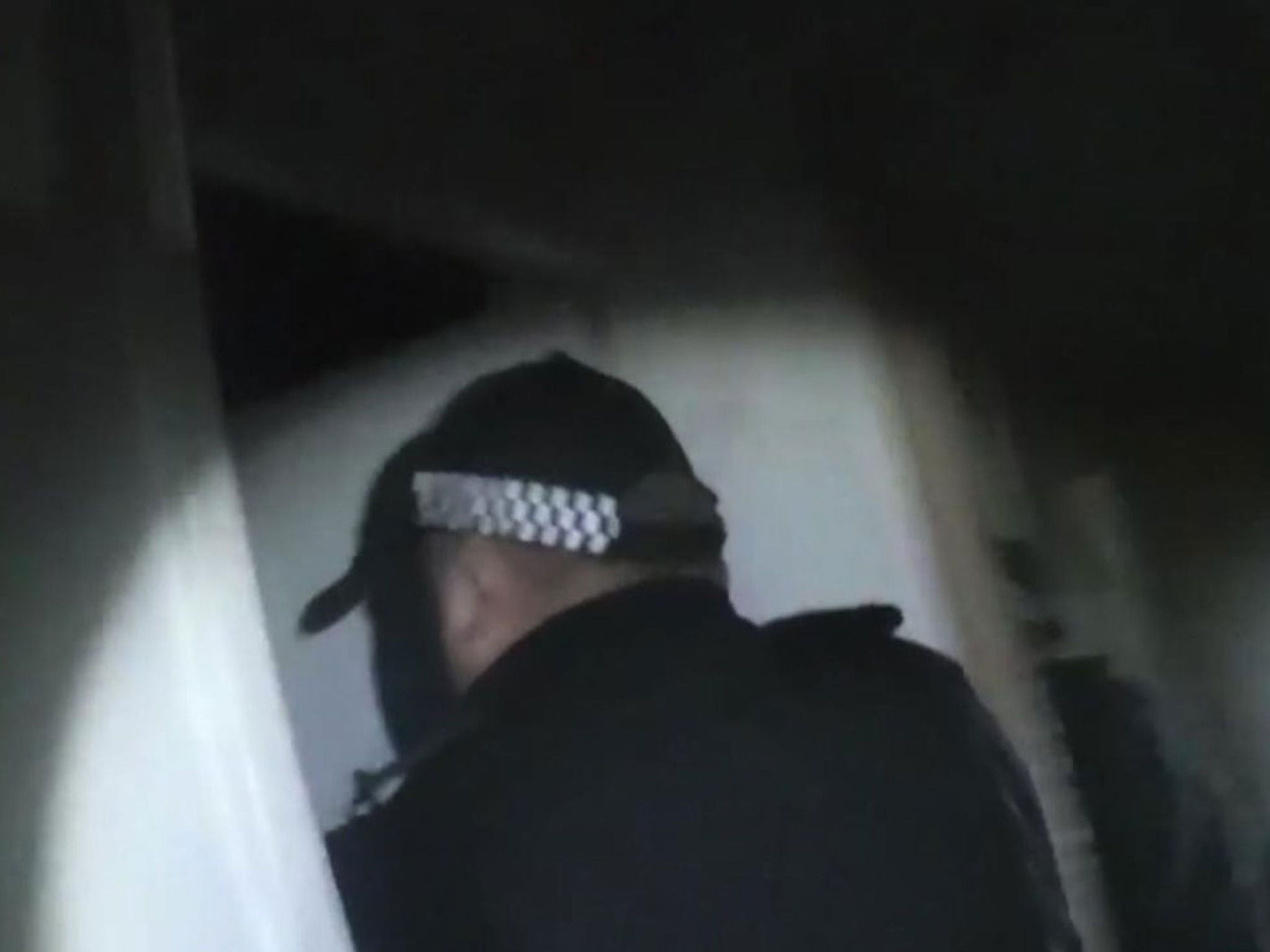Police rescue child drug mules and arrest more than 200 people in national crackdown on 'county lines' gangs
Drugs and weapons including a samurai sword seized in nationwide week of action
Police have arrested more than 200 people and rescued children being used as drug mules in a nationwide crackdown on “county lines” gangs.
The city-based groups, who deal drugs via branded phone lines, target small towns and rural territories where they violently control the lucrative supply.
The growing phenomenon has been partly blamed for a rise in stabbings across England and Wales, as the proportion of murders involving people using or dealing drugs rose to 57 per cent.
A week-long operation has seen more than 200 suspects arrested and 58 vulnerable people, including children, put under protective measures.
Officials said the sweep has “substantially disrupted” several gangs, after a report revealed that children as young as 12 were being exploited in the brutal trade.
Police seized weapons including a samurai sword, axe, meat cleaver, gun and ammunition, and hunting knives, alongside tens of thousands of pounds in cash and “significant quantities” of heroin, crack cocaine and other illegal drugs.
Dozens of police forces and Regional Organised Crime Units were involved in the national crackdown, executing search warrants, gathering intelligence and arresting people already serving prison sentences on new evidence.

Officers also visited vulnerable people believed to be at risk of “cuckooing”, where county lines gangs take over their homes to use as a makeshift base, and contacted landlords and private hire drivers who may come into contact with offenders.
The drive was launched by the new National County Lines Coordination Centre, which was started last month under joint leadership by the National Crime Agency (NCA) and National Police Chiefs’ Council (NPCC).
Sue Southern, the NCA’s national county lines lead, said: “Supply gangs are responsible for high levels of violence and the exploitation and abuse of vulnerable adults and children, and every territorial police force in England and Wales has now reported some level of county lines activity.
“There are currently hundreds of live county lines investigations across the UK, and this period of intensification highlights the range of coordinated activity taking place to identify perpetrators, reduce violence, take away the proceeds of crime and safeguard the vulnerable.
“While these operations will have substantially disrupted numerous county lines, our work is ongoing and we are pursuing all available means of strengthening the national response.”
There are an estimated 1,500 county lines operating across the UK, with each one generating between £3,000 and £5,000 per day.
It is often children who are sent long distances to deal the drugs, and they will frequently be subject to violence and threats, while gangs use violent and intimidating tactics to defend their territory.
Deputy Assistant Commissioner Duncan Ball, the NPCC lead for county lines, said: “Our primary aim in dismantling these networks is protecting the young and vulnerable people who are exploited by gangs and are subject to violence, fear and intimidation.
“This week’s intensification has protected 58 people from that violence, as well as removing a significant amount of drugs from the supply chain and disrupting gangs who profit from spreading fear and suffering throughout the UK.”
The crackdown came after research by the St Giles Trust showed some children were dealing drugs for county lines gangs to support their families financially, putting themselves at risk of arrest or attacks by rivals.
One police officer told researchers that gangs viewed children as “expendable foot soldiers – if one gets sent down or killed, there are plenty more to take their place”.
Most of the teenagers involved were found to be from deprived backgrounds or in care, and excluded from school, although some were from “well ordered and materially comfortable families”.
Researchers said the diversity was partly caused by gang leaders recruiting local drug mules and dealers to “blend in” with the target market, ranging from universities to homeless people, without attracting attention from police.
There is no set protocol for responding to a child found working on county lines, meaning police officers must choose whether to arrest them, refer them to the national referral mechanism for modern slavery or let them go in each case.
The inconsistencies mean the scale of the problem, and the number of children involved, is unknown, while researchers said it is ultimately being driven by the “continuing and growing demand for drugs”.
The National County Lines Coordination Centre, which was given £3.6m of Home Office funding, is working to build up intelligence on the complexity and scale of the threat.

